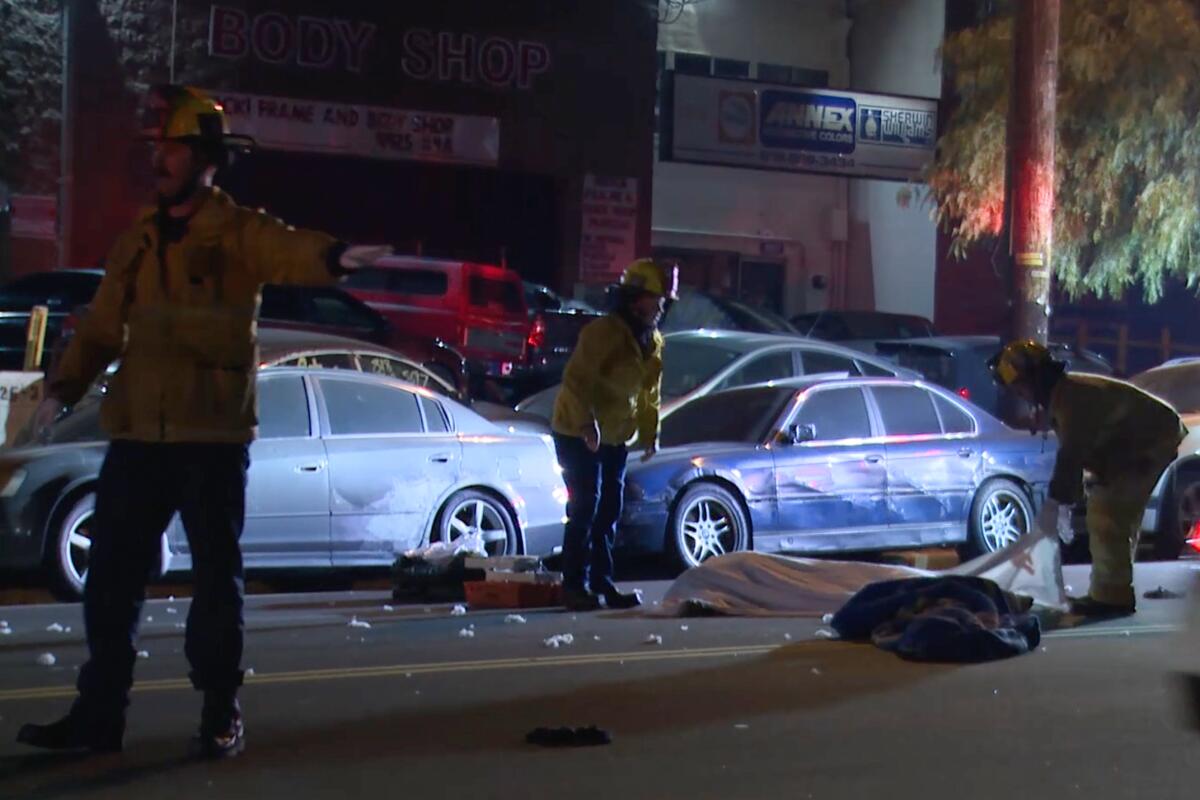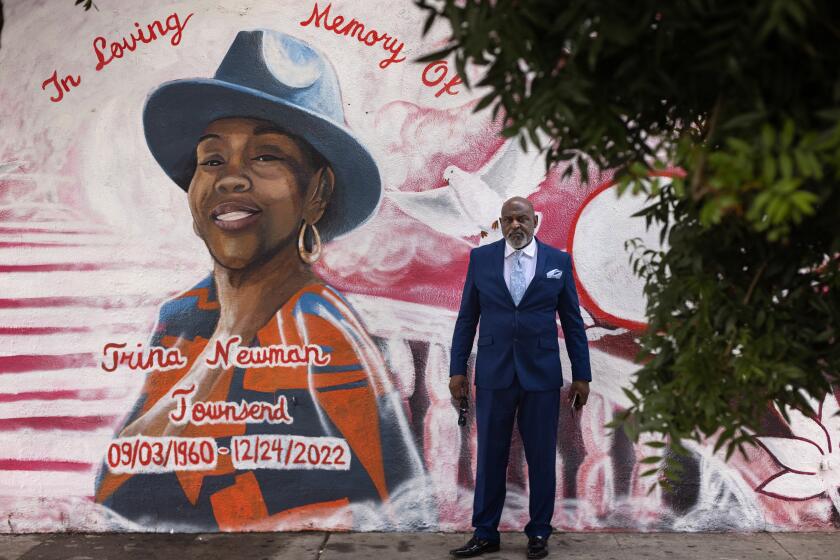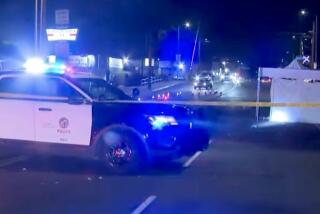Car crashes killed more people than homicides in Los Angeles last year

There were more fatal crashes last year than all homicides for the first time in a decade, as traffic deaths reached a record high in Los Angeles.
In all, 336 people died in crashes in 2023 — more than half of them, 179, were pedestrians. That’s the highest number since the city started keeping statistics more than two decades ago.
Calling them “untenable circumstances that are threatening our community,” L.A. Police Chief Michel Moore delivered the grim statistics during a joint news conference with Mayor Karen Bass on Wednesday.
Fatal crashes overall jumped about 8% over 2022, while fatal hit-and-runs surged 23%, causing 106 traffic deaths. Meanwhile homicides dropped 17% to 327.
To address the rise in fatal collisions, he said, officers were focusing on problem areas, handing out speeding tickets, cracking down on drunk drivers and solving hit and run crashes. But advocates say law enforcement alone won’t fix a larger problem if streets aren’t friendlier to those who walk them.
“This is a deadly city and it’s not being treated with urgency,” said Damian Kevitt, executive director of the advocacy group Streets Are For Everyone. “We need to declare a state of emergency on traffic violence and treat it as the public health crisis that it is.”
Among those killed were 13-year-old Chris Amaya-Pineda and his 2-year-old brother, Damian, hit when a motorist sped through a red light on Main Street in South Los Angeles in January. In April, a mother walking her 6-year-old daughter to school in the Mid-Wilshire area was struck and died. Shortly after, city officials expedited the hiring of crossing guards, started a program to add speed humps near 70 schools, and reduced speeds around 250 schools.
But the deaths continued.
In October, a block away from where the brothers were killed, 15-year-old Felipe Manuel Infante-Avalos was in the crosswalk at East 110th and Main streets on his way home from school when a driver mowed him down.
In Malibu that month, four Pepperdine University students were killed by a driver going 104 mph. And on Thanksgiving, a suspected drunk driver traveling more than 100 mph hit a car with three women inside, killing a 24-year-old single mother. She was one of three people killed by speeding or inebriated drivers in South L.A. on that holiday.
Enforcement has fallen and the city’s interest in making streets safer has waned, Kevitt says, adding that then-Los Angeles Mayor Eric Garcetti’s Vision Zero plan that was supposed to eliminate fatalities by 2025 has been largely abandoned.
Pressure is growing from advocates to do more faster.
On Saturday, Kevitt’s group is planning a “die-in” on the steps of City Hall asking officials to take swift action on safety measures such as implementing speed cameras that were approved by the state Legislature last year. A March ballot measure proposed by another advocacy group would force the city to build more protected bike lanes and wider sidewalks.
For the first time, California is permitting speed cameras, including in L.A., where one South Los Angeles resident says cars are ‘now the weapons.’
State Sen. Scott Wiener (D-San Francisco) introduced legislation Wednesday proposing “speed governors” be required in all new vehicles by 2027. The devices would prevent drivers from going 10 mph over the speed limit.
“The alarming surge in road deaths is unbearable and demands an urgent response,” he said in a statement.
The grim statistics come as deadly collisions nationally seem to be leveling off after an alarming jump during the pandemic. According to data from the National Highway Traffic Safety Administration, there was a 3% decrease in fatal collisions during the first half of last year.
More to Read
Sign up for Essential California
The most important California stories and recommendations in your inbox every morning.
You may occasionally receive promotional content from the Los Angeles Times.













